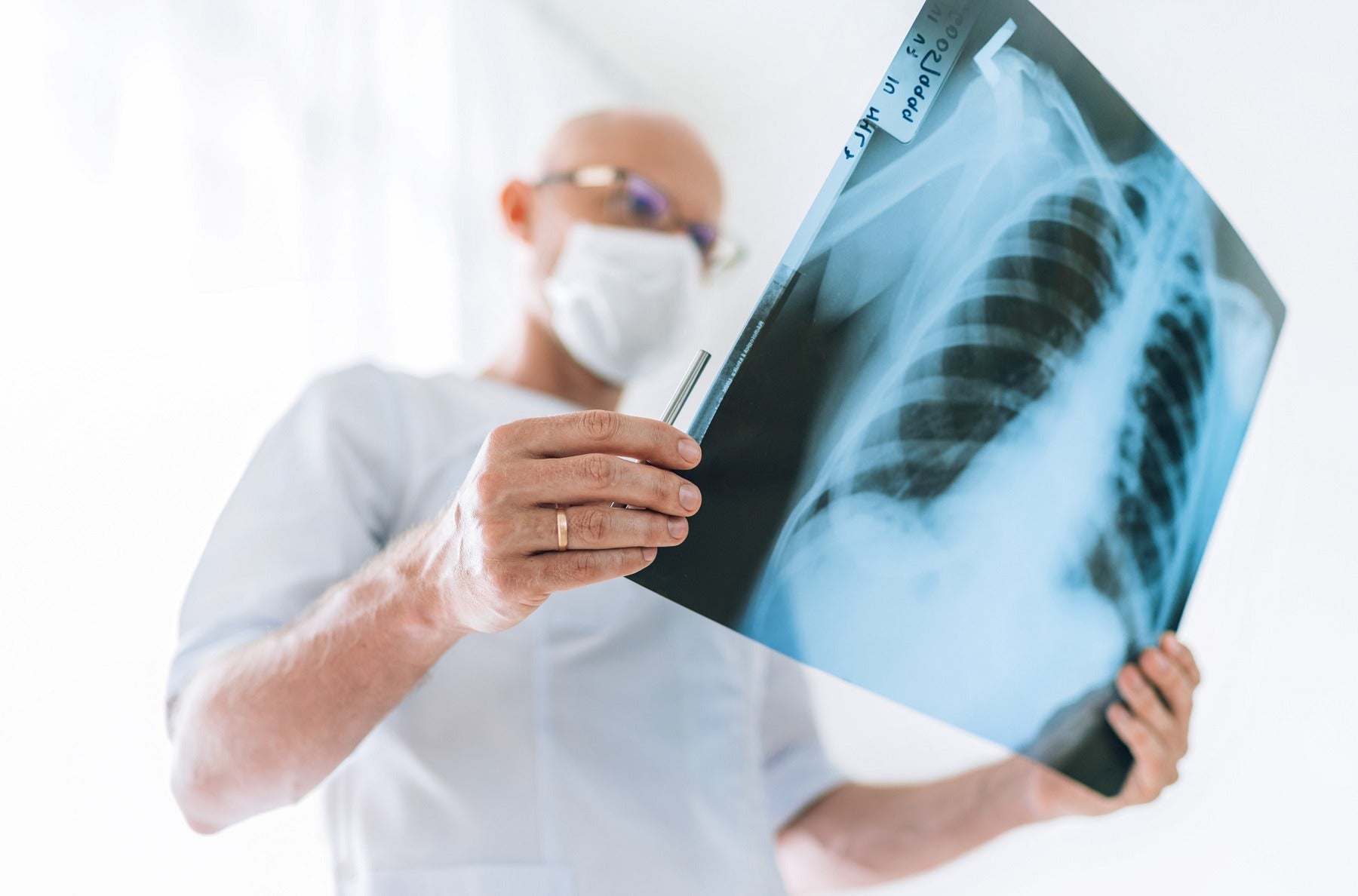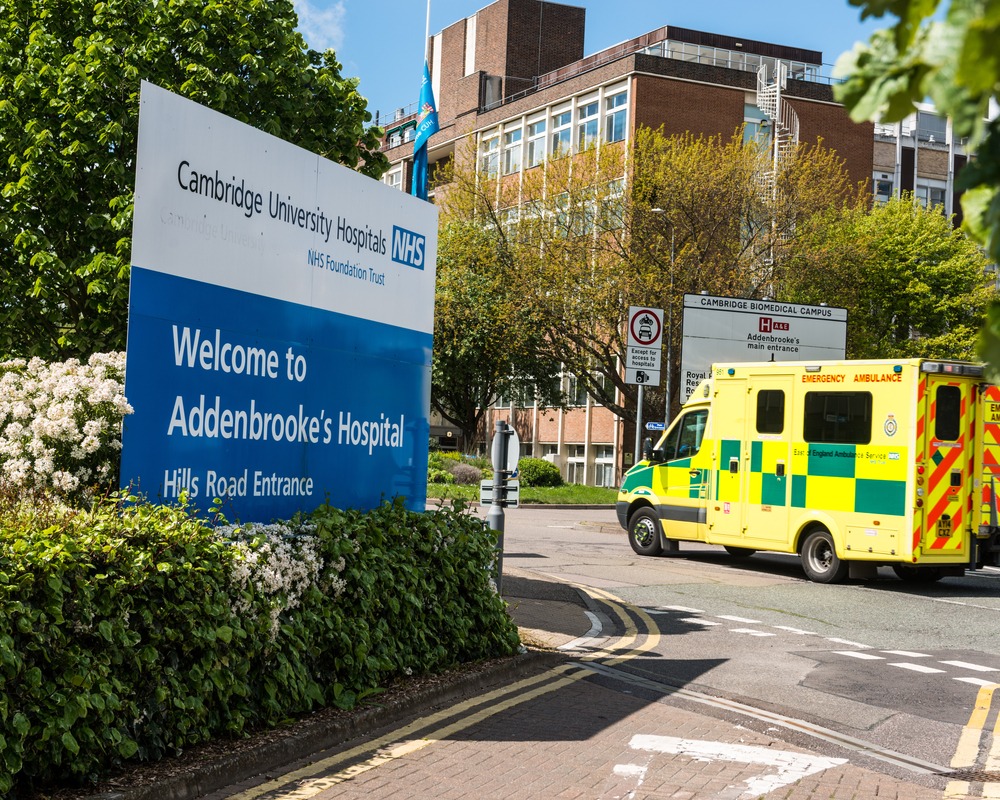
In the UK, the situation regarding Covid-19 is among the worst that can be seen anywhere in the world right now, making the introduction of a new, nationwide imaging database designed to help harness the potential of AI all the more welcome.
The National Covid-19 Chest Imaging Database (NCCID), which consists of CT scans, MRIs and X-rays from more than 12,000 patients, is now accessible to hospitals and universities across the UK – several of which are already attempting to make the most of this resource using AI tools.
The database features thousands of medical images taken during the pandemic, having been set up last year by NHSX – the government unit responsible for driving digital transformation in the NHS.
Discussing the NCCID, Matt Hancock, UK Secretary of State for Health and Social Care, said recently: “The use of artificial intelligence is already beginning to transform patient care by making the NHS a more predictive, preventive and personalised healthcare service.
“It is vital we always search for new ways to improve care, especially as we fight the pandemic with the recovery beyond.
“This excellent work is a testament to how technology can help to save lives in the UK.”
National Covid-19 Chest Imaging Database
The NCCID is a centralised Covid-19 imaging database containing more than 40,000 medical scans from hospital patients across the country, making it one of the largest initiatives of its kind in the UK.
It was jointly established by NHSX, the British Society of Thoracic Imaging (BSTI), and the Royal Surrey NHS Foundation Trust and Faculty, to support a better understanding of the novel coronavirus, which – as of 25 January – has resulted in 3.67 million infections and close to 100,000 deaths domestically.
NHSX is also hoping researchers will be able to use this resource to develop new technologies that will make the earlier diagnosis of Covid-19 possible, therefore enabling the best possible care for patients hospitalised with a severe infection.

At time of writing, there are a total of 20 NHS trusts contributing chest imaging data to the NCCID – including the University Hospitals NHS Foundation Trusts at Oxford and Cambridge, and Betsi Cadwaladr University Health Board, which is the largest health organisation in Wales.
It was created by scaling up an existing data collection process that has previously been used to gather mammography data for research. One of its key features is the fact it de-identifies all of the data it holds at the point of collection, removing any potential legal or ethical complications regarding privacy, and patient confidentiality.
The NCCID has been made available to researchers, clinicians, technology companies, and, according to NHSX, any other parties looking to investigate the virus and develop solutions to support the Covid-19 patient care pathway.
How are UK hospitals and universities using the NCCID?
Clinicians from the globally-renowned Addenbrooke’s Hospital in Cambridge have wasted little time in harnessing this new resource.
By developing an algorithm based on NCCID data, the team is hoping to inform a more accurate diagnosis of patients when they present to hospital with potential Covid-19 symptoms, but have not yet had a confirmed test.
Using visual signatures associated with the virus – which appear in chest scans – they have been able to compare patterns in a patient’s images with those seen previously in the NCCID, resulting in a more accurate diagnosis and prognosis.
Carola-Bibiane Schönlieb, Professor of Applied Mathematics and head of the Cambridge Image Analysis group at the University of Cambridge, says: “The NCCID has been invaluable in accelerating our research and provided us with a diverse, well-curated, dataset of UK patients to use in our algorithm development.
“The ability to access the data for 18 different trusts centrally has increased our efficiency, and ensures we can focus most of our time on designing and implementing the algorithms for use in the clinic for the benefit of patients.
“By understanding – in the early stages of disease – whether a patient is likely to deteriorate, we can intervene earlier to change the course of their disease and potentially save lives as a result.”
The NCCID is also helping researchers from several other universities – including University College London and the University of Bradford – to develop AI tools that could help doctors improve treatments for patients with Covid-19.
In total, 13 different research projects utilising the database are currently underway – with UK-based tech firm V7 Labs, Dutch medical equipment manufacturer Aidence and Medical Analytica, a Welsh company that deploys AI in oncology screening, all attempting to anticipate the severity of Covid-19 infections more effectively, and ultimately improve detection of the virus.
What are those involved saying about the database?
In addition to Matt Hancock, several executives involved with the ongoing NCCID project have commented on its importance and the breakthroughs it could eventually enable in the earlier diagnosis of Covid-19.
Dominic Cushnan, Head of AI Imaging at NHSX, says: “We are applying the power of artificial intelligence to quickly detect disease patterns and develop new treatments for patients.
“There is huge potential for patient care, whether through quicker analysis of chest images or better identification of abnormalities.
“The industrial scale collaboration of the NHS, research, and innovators on this project alone has demonstrated the huge potential and benefits of technology in transforming care.”

Evis Sala, Professor of Oncological Imaging at the University of Cambridge, says: “The NCCID team have been extremely knowledgeable, helpful and responsive to our questions throughout the process.
“This is precisely the initiative we need to ensure we are better prepared and more responsive for future pandemics.”
Dr Mark Halling-Brown, Head of Scientific Computing at Royal Surrey County Hospital, says: “Royal Surrey NHS Foundation Trust has led the way in creating and sharing research imaging databases that have enabled the development of AI tools, and has more recently specialised in the evaluation and validation of AI radiology products within a range of specialities supporting their safe deployment into the clinic.
“Our expertise allowed us to help build the National Covid-19 Chest Imaging Database, and we are excited by the potential of the AI solutions being developed and the research underway that will use this dataset.”






